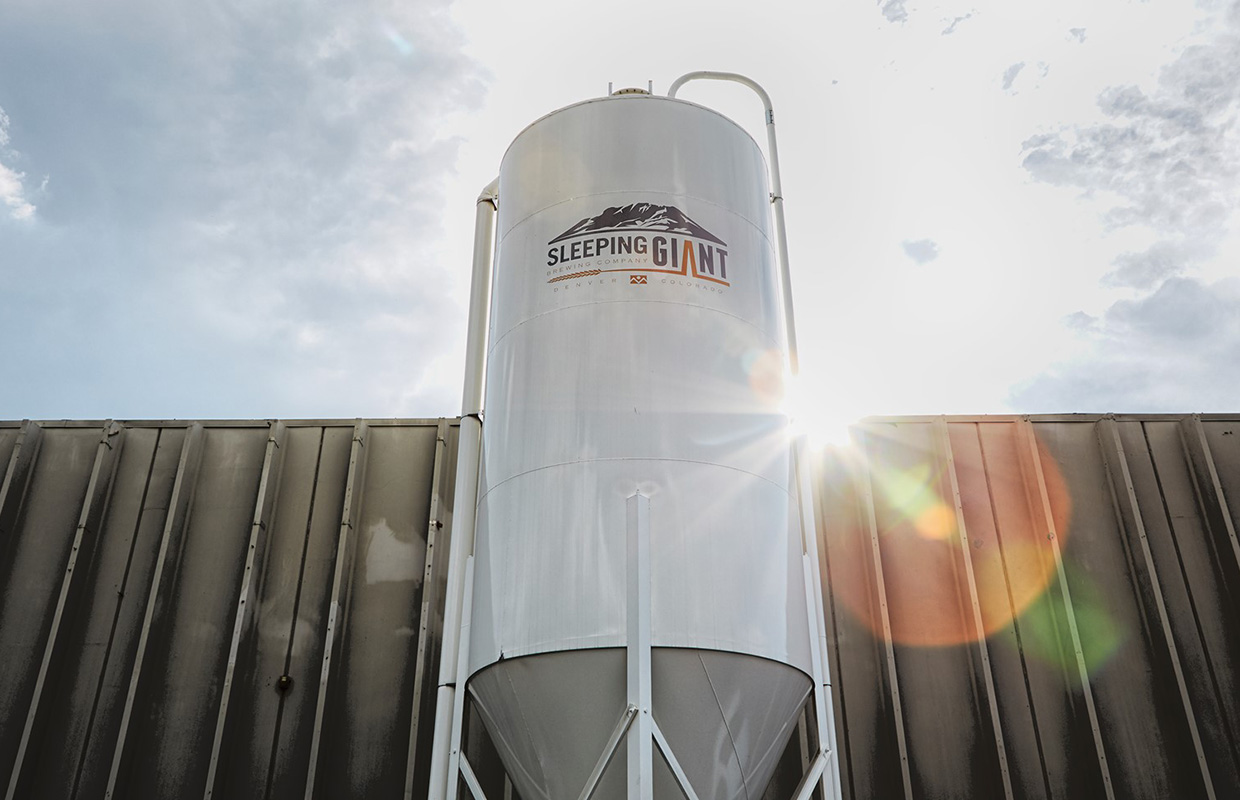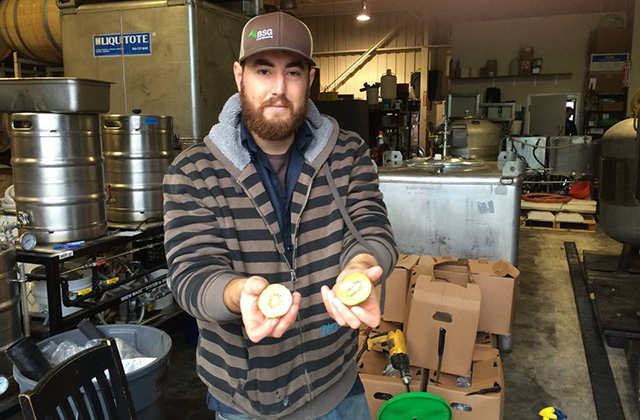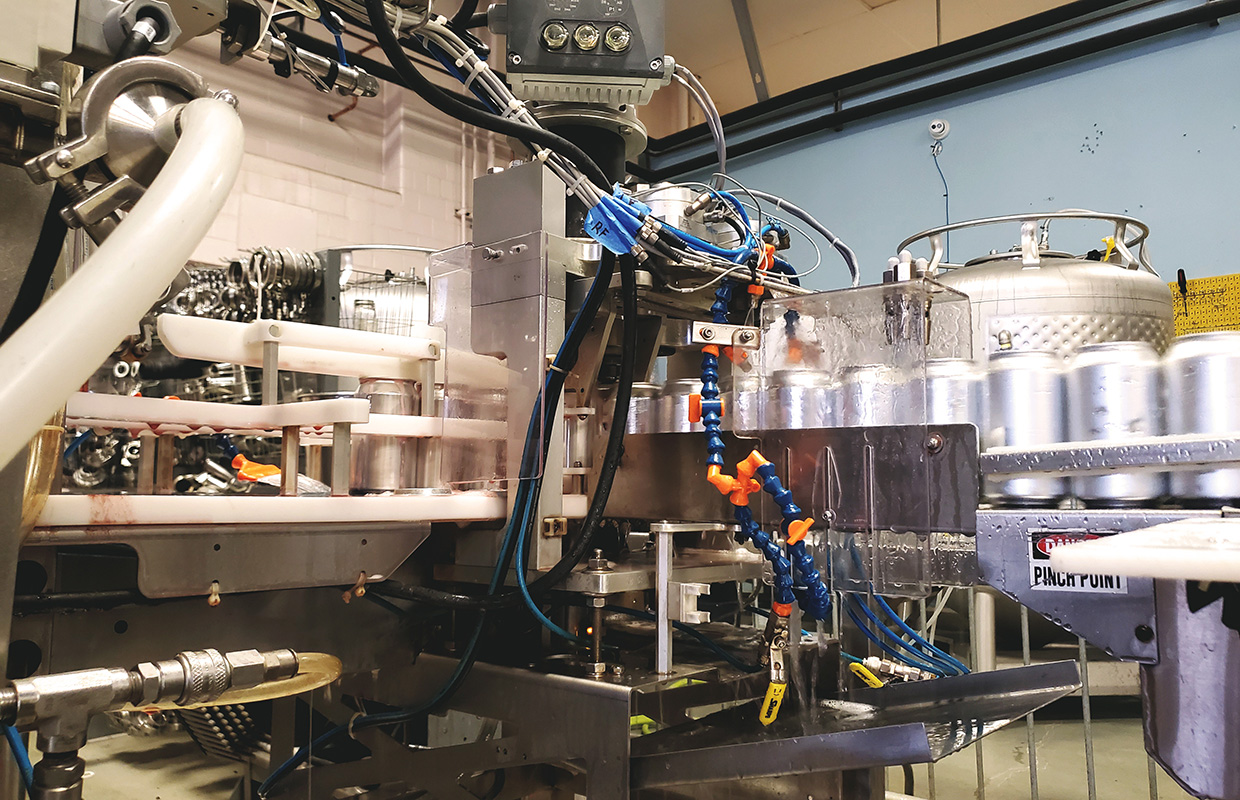
An interesting panel that happened at the recent 2022 Craft Brewers Conference came from a discussion by Sleeping Giant‘s Matthew Osterman & North Coast‘s Jennifer Owen. Sleeping Giant is one of the largest contract brewers for craft breweries in the country, and North Coast, a veteran craft brewery on the west coast, talked about the pluses and minuses of having your beer contract brewed.
Of course, having contract brewing as a cornerstone of what they do, Osterman — the founder of Sleeping Giant — had a lot of pros in why a brewery would want to contract brew, but he wasn’t shy on the negatives either. Owen, the CEO of the Fort Bragg, California brewery, explained why the longtime brewery went in this direction as well for canning.
Osterman said he finds brewers in need of contract brewing as three types of potential clients:
- A brewery, or beer company, that might be adding capacity.
- A brewery may not be adding capacity, but they may be looking for access to a new or different facet, and/or a different type of equipment, such as pasteurization or centrifuge.
- A brewery that looks at contracting as a dedicated model.
Osterman used Boston Beer’s Jim Koch as an example of a brewery that launched this way.
“He had a fixed amount of money in wanting to start a brewery. And he said I can spend 90% of my capital on a brewery and have 10% left over for sales and marketing. Or I can do the inverse of that,” Osterman explained. “I can take this beer that doesn’t exist and spend 90% of my money on sales and marketing. And that’s what they did.
“I say, it probably worked out pretty well for them.”
READ MORE: Contract Brewing Questions You Need to Ask
Pros
So a “Pro,” he shared is leveraging better equipment or technology.
“This isn’t necessarily about who has the better toys, but it’s just a lot of times, a contractor is gonna be bigger than you by nature,” Osterman said. “They may have nicer, larger, and newer equipment.
“To that same thing, you can leverage potentially a more developed/more mature workforce and skill set with the employees that they have there.”
Owen said the purpose was to get into cans and using a contractor made sense.
“North Coast has been bottles-only forever, still mainly bottles, but we want to get into cans like everybody else,” she said. “We had zero space to build a canning line. So we looked for a contract brewer and then moved after a year or so to the alternating proprietorship. It just allowed us quickly to move to cans without waiting to secure property, build a plan, and get all your equipment together. So it was a quick entry into the market.”
There’s even the notion of going into packaging or beverage types that your brewery doesn’t want to undertake.
“Maybe you don’t want to do hard seltzer at your own brewery or you don’t want to do a product that you’re a little nervous about maybe, like CBD water,” Osterman said. “That could be done somewhere else.”
Even something like freight efficiency can be a factor and a plus. Getting your beer made closer to the consumer could actually be a cost-saver.
Along those same lines, Osterman said, is leveraging the existing sales or distribution network that the contractor might have as well.
Cons
Of course, quality control was a big one for North Coast, Owen said.
“We spent the entire first year trying to get the product right,” she said. “It had to be ‘our’ beer. And the first year, it didn’t work with that contract brewer.
“The second year we tried again, and we finally got the recipe down. The contract brewer was able to get the recipe down, which is huge. … Everything’s got to be just perfect, just the same.”
One of North Coast’s biggest concerns initially was labeling and who is given credit for the beer.
“I mean, we’re supervising, it’s our beer, it’s our recipe,” she said. “But the can discloses that and we were really concerned about that. This is our beer, it’s our baby, and it’s going to taste the way we want it to taste. We want everyone to know it’s our beer. So in the contract brewing arrangement, that label is going to be different. Once you get into an alternating proprietorship, it’s all you on that label as the tenant, but in the contract brewing situation that label discloses to the world that you’re contract brewing.”
Owen warned to nail down logistics as well.
“You need to have a very clear idea of who’s doing what, and when,” she said, making sure timelines are met and direct contacts on production are made.
“Making accounting decisions gets really messy,” she noted. “Yet your brewers are the ones primarily in contact with the contract brewer. So we learned kind of the hard way that we need accounting talking to accounting, production talking to production, packaging talking to packaging because those things can all get very complicated.”
All of North Coast’s accounting office has spent hours trying to make sure they’re speaking the same language as the contract brewer.
“If you’re all using the same accounting systems, it’s much easier because you have to know all the brewers’ reports,” she said. “You’re really digging into the contract brewers’ books to get the information you need on the raw materials list. So it’s very complicated.”




Be the first to comment